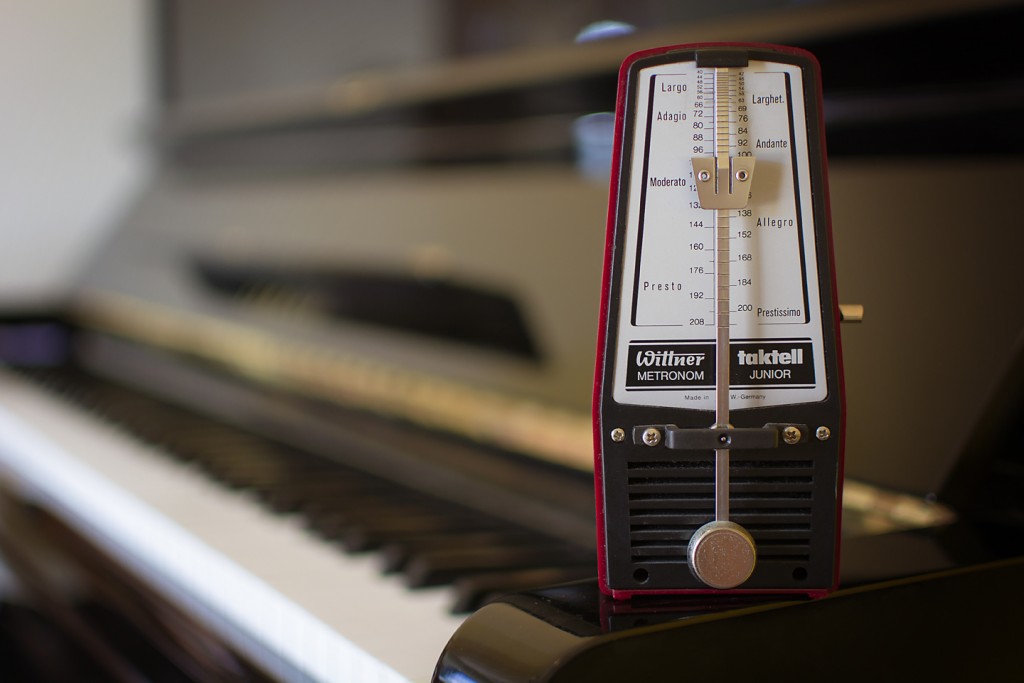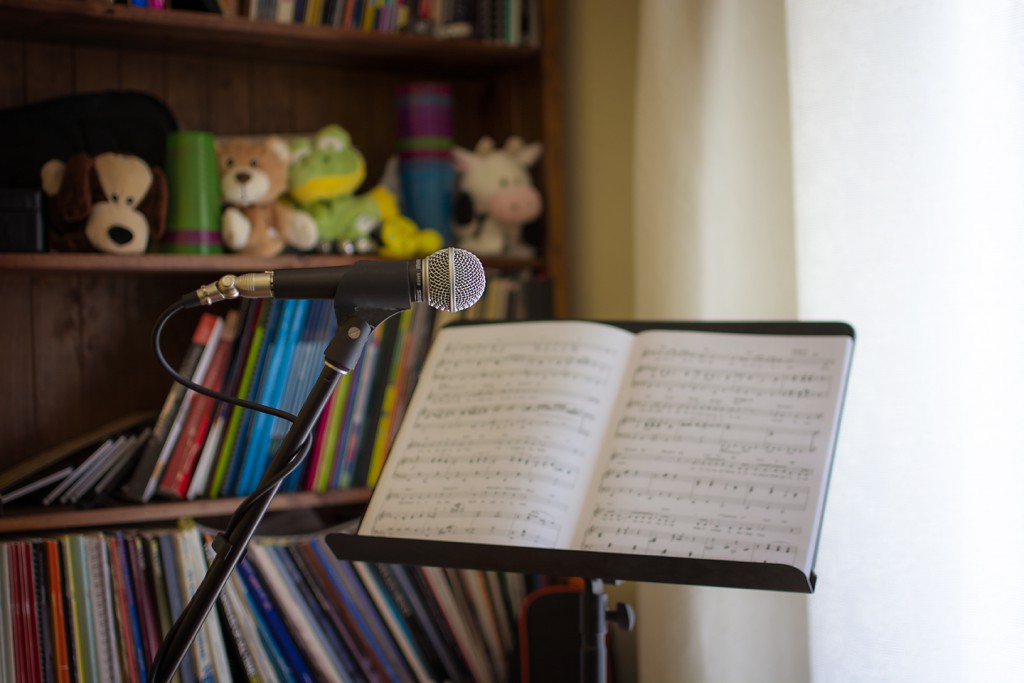
+ What is taught in music lessons?
We will teach the student how to listen and respond to sound using the language of music, how to understand and interpret rhythm and music notation, how to play the instrument with good technique and posture, how to practice, how to prioritise time, how to set goals, how to perform in front of an audience, general musicianship, historical context of the repertoire, music appreciation and an enjoyment of playing and/or singing.
Piano students are encouraged to explore transposition, improvisation and composition, and improve their sight reading. Singers are encouraged to explore sight singing, improvisation, character work and songwriting. All students may additionally study formal music theory as part of their lesson.
HSC students may also receive assistance with musicology, sight singing (for Music 2), or composition tasks.
+ My child wants to learn music. How involved should I be?
As a parent, it is important to be involved in your child’s music education. At a minimum, parents need to peruse the practice notes in order to monitor progress, assist them to adhere to the goals set, remind the students to pack their books on lesson days and provide encouragement. Most students will need reminders to practice, especially throughout the first year of lessons, until good habits are established. It is not a failing of your child or a sign of disinterest if they need to be prompted to practise!
Younger children will need their practice closely supervised. Sitting in on lessons can be beneficial for both parent and student, particularly if the student is of primary school-age or younger and all parties are comfortable with this arrangement.
Parents who wish to learn their child’s instrument in order to better understand and assist their children in their pursuit of musical knowledge are encouraged to have lessons as well.
+ How old do you have to be to learn?
Students aged 3 to 7 may share a lesson with a parent. More about Parent & Child lessons.
We take one-on-one piano students from the age of 7, as at this stage, they have the skills to read and can work independently.
We take one-on-one vocal students from 7 years. As well as vocal technique and repertoire, these lessons involve general musicianship skills including music reading, music theory, basic piano skills, rhythm activities and sight singing.
Specialised vocal lessons focussing on technique and repertoire start from age 12, except in exceptional circumstances such as the student presenting as very gifted or showing signs of vocal stress.
Adult beginners are welcome. Nobody is too old to start music lessons!
+ Do I need to buy a piano?
If you are or your child is studying voice, the purchase of a piano is completely optional. It may be helpful to have access to a keyboard for home practice.
Piano students do need an instrument to use at home. This should be at a minimum a digital piano with 88 fully weighted keys, preferably a Casio Privia, Yamaha or Roland. Acoustic pianos in good condition, and tuned professionally, are preferred but not mandatory. Preferred brands of Acoustic pianos are Yamaha or Kawai – though if you want to buy a Steinway, go right ahead! As the student advances, it may be necessary to upgrade the instrument.
There are many places to purchase an instrument. If you are signing up for lessons, please check with us about the brand and condition of the instrument before you buy.
We can hire out a keyboard on a short term basis while you research purchasing a piano.
+ Can I learn in a group or share a lesson?
Group lessons are available for small groups of homeschool students during school hours. These classes are general music classes, not instrument specific. We do not currently offer group lessons for piano or voice.
Shared lessons for parent and child aged 3 to 7 are available. These are 45 minutes per week and comprise a combination of child focussed and parent focussed activities, and are tailored specifically to the needs of the family. These lessons will explore singing, piano, rhythm activities, music games and more to foster a love of music and strong foundational skills.
Special group short courses for adults and school holiday workshops for children occasionally run out of a larger space off-site. Contact us for more details.
+ How much do lessons cost?
Lessons are charged by the term. Most beginners aged 7+ start with a 30 minute private lesson per week, though lessons can be for 30, 45 or 60 minutes, depending on the age, level and needs of the student. A full list of packages and their costs is available on the Private and shared lessons page.
If your needs are outside the scope of the listed packages, we can discuss options to suit you.
+ Are there additional costs?
Students should expect to budget around $100/year on sheet music and resources. Students progressing quickly may need up to $150 of music each year. This includes single sheets purchased for download, repertoire books, technique books, sight reading material and theory books as needed.
The studio subscribes to some apps and services that provide supplementary material at no extra cost to the student. The cost of these subscriptions is included in your lesson fees. Students should provide a display folder for print outs of studio licensed material.
If students choose to do exams or competitions, the entry/registration fees are an additional cost.
Masterclasses and workshops are occasionally offered at an additional cost.
The annual concert is a ticketed event.
+ How do I pay my lesson fees?
Students are invoiced by the term. Payment is required by the first lesson of term. There is a 10% early bird discount for payment by the early bird date (approximately 14 days prior to commencement of term).
Payment is by direct deposit.
Only students at the fully flexible rate may pay as they go.
There are no EFTPOS or credit card facilities.
+ Can I use my Creative Kids Voucher?
If you are eligible for a Creative Kids Voucher, you can redeem it at HPMS to go towards term fees.
To redeem your voucher, forward it via email to the studio along with the student’s date of birth. We will process it and apply it to your account.
+ What is the policy on cancellations?
If the issue is being unable to attend in person, an online lesson will be held instead. Consistency of attendance is necessary for progress. Inability to attend a scheduled lesson should be advised as soon as possible. At least 24hrs notice is required in order to reschedule a lesson. Lessons cancelled with notice will be given makeup credits and can be rescheduled through the student and parent portal. Credits expire after 100 days. It is the responsibility of the student or parent to ensure credits are used.
Lessons cancelled by the teacher will be rescheduled.
Lessons cancelled without requisite notice will not be rescheduled.
+ What are your training and qualifications?
Helen studied piano and voice at the Queensland University of Technology, where she graduated with a Bachelor of Music. She later completed a Master of Teaching in music and drama at the same university. She has an Associate of Music on piano from the AMEB and has completed up to and including 8th Grade AMEB Singing (with Distinction) as well as 7th Grade Rockschool Vocals. She is a former high school performing arts teacher and a professional performing artist. Learn more about Helen.
Our teachers have been handpicked and trained by Helen to meet her exacting standards. All teachers at HPMS have studied or are currently studying in related fields at tertiary level, have achieved High Distinction results in examinations on their instrument and are continuing their professional development. Learn more about our staff.
+ What if I want to do exams?
You can! We have put many students through exams over the past two decades with consistently excellent results. Over the past ten years of AMEB, Rockschool and Con Brio exams, 100% of all piano students and 80% of all singing and musical theatre students have achieved a result of Honours/Distinction (A) or High Distinction (A+), with a 100% pass rate. In 2023, 100% of all grade exam students achieved Honours/Distinction (A) or High Distinction (A+). At HPMS, we know how to best prepare a student for a music exam.
The examining bodies set the fees for exams and these therefore will be additional to your lesson fees.
+ What if I don’t want to do exams?
You don’t have to do exams if you don’t want to. An exam is one way of setting goals, monitoring progress and getting performance practice but there are many other ways. Playing or singing for pleasure is a legitimate reason to learn music.
+ Can I choose the music I learn?
We will work together to find appropriate repertoire for the needs, abilities and tastes of the student.
As piano students are encouraged to complete the 40 Pieces Challenge, they will have opportunities to play many of their own choices as well as many pieces of the teacher’s choosing.
Singing students are encouraged to sing a variety of styles of music as well as their favourite songs.
+ How often do I practice and for how long?
It’s not just the quantity of practice, but the quality that is important. We teach students to plan their practice, set goals and aim to achieve each goal set by using many and varied techniques. Students will make the most progress if they are making music six days a week and being mindful rather than mindless during the music making.
The answer to the question is: as often as you can and until your goals are met.
For more information about practice, check out our YouTube series.
+ What opportunities for performing are available?
An annual concert is usually held towards the end of term one. This concert is a celebration of student progress, where all students of the studio, including brand new beginners are invited to perform for family and friends. Students are encouraged to perform in ensemble items. The emphasis is on developing a sense of community within the studio.
Student workshops and masterclasses are offered on an as needed basis.
Developing and Advanced students are able to compete in eisteddfods, and audition for local ensembles or musical theatre productions. School aged students are encouraged to take up as many performing opportunities at school as possible.
Occasionally, local fêtes, fairs, agricultural shows, or community carols may seek performers from the studio.
All students are encouraged to perform for family and friends semi regularly, in both formal and informal settings.

